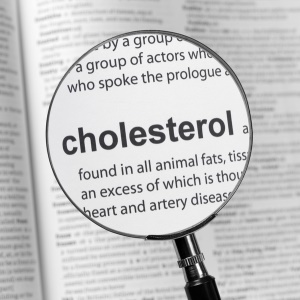
High cholesterol can be caused by a number of genetic and lifestyle factors.
The following are the main causes:
- Genetics (controllable with modern medication)
- Diet (controllable)
- Underlying medical conditions (thyroid and kidney disorders, partly controllable)
- Overweight (controllable)
- Inactive lifestyle (controllable)
- Age and sex (uncontrollable)
- Smoking (controllable)
1. Genetics
High cholesterol levels may be caused by an inherited (genetic) problem that changes the way the body handles cholesterol. The liver is the most important organ for regulating the blood level of especially LDL that carries the bulk of the blood cholesterol.
Your genes can give you liver cells that don’t remove LDL cholesterol from your blood efficiently, but there could also be an excessive production of cholesterol and triglyceride (another important fat) by the liver. In such cases, your total cholesterol will usually be well over 6.5mmol/L.
These conditions are called lipid disorders and they may be more difficult to treat. Even if your fat intake is only average, you will have elevated cholesterol simply because your body has been “programmed” to balance cholesterol differently.
The impact of genetics can, however, be modified by diet and medication.
2. Diet
Diets high in cholesterol and saturated fats can increase blood cholesterol levels. While consuming cholesterol will clearly add to the amount in the body, the amount of saturated fat eaten is also important, because this regulates how the liver regulates cholesterol. Fats are classified as saturated or unsaturated according to their chemical structure.
Saturated fats are derived primarily from the meat of mammals and from dairy products and can raise blood cholesterol levels. On the other hand, most vegetable oils are high in unsaturated fats. These, consumed in the recommended amounts, do not raise blood cholesterol and can sometimes even lower it.
It is important to note that some "good" vegetable fats are treated by a process called hydrogenation to make them harder at room temperature and more commercially viable. This process, when incomplete, can convert unsaturated fats into the trans form, which has adverse effects on one’s cholesterol profile. Trans fats should be avoided.
3. Underlying medical conditions
Underlying medical conditions are known to influence cholesterol levels, especially conditions such as thyroid disease, polycystic ovarian syndrome and diabetes. Improved control of these conditions will normalise cholesterol levels and so reduce the risk of heart disease.
4. Overweight
Being obese or overweight increases “bad” cholesterol and lowers “good” (HDL) cholesterol. By losing a kilogram, you may be able to raise your HDL by 0.1mmol/L. A body mass index of 25–29kg/m2 is regarded as overweight and anything above that is considered obese.
5. Inactive lifestyle
Any kind of physical activity can increase your high-density lipoprotein (HDL) “good” cholesterol. You should aim to get at least half an hour’s worth of exercise every day. Swimming, walking and cycling are good forms of exercise, and simple things like taking the stairs instead of the lift can make a big difference.
6. Age and gender
Age has a lot to do with your cholesterol level. Men over 45 and women over 55 years of age are at risk of complications from a cholesterol problem.
Women tend to have higher HDL (“good”) cholesterol levels than men because of the female sex hormone oestrogen. After menopause, though, this advantage is lost and women’s risk for heart disease increases. There is also some evidence that high triglycerides pose more of a risk for women than for men.
7. Smoking
Research indicates that the habit of smoking may decrease “good” HDL cholesterol. Although there is no proof that smoking affects LDL, the “bad” cholesterol, the toxins produced by cigarettes may oxidise the LDL in the bloodstream, leading to inflammation.
Levels of HDL cholesterol have also been observed to be higher in people who have quit smoking.
Reviewed by Prof David Marais, FCP(SA), Head of Lipidology at Groote Schuur Hospital and the University of Cape Town, January 2018
Image credit: iStock




 Publications
Publications
 Partners
Partners












